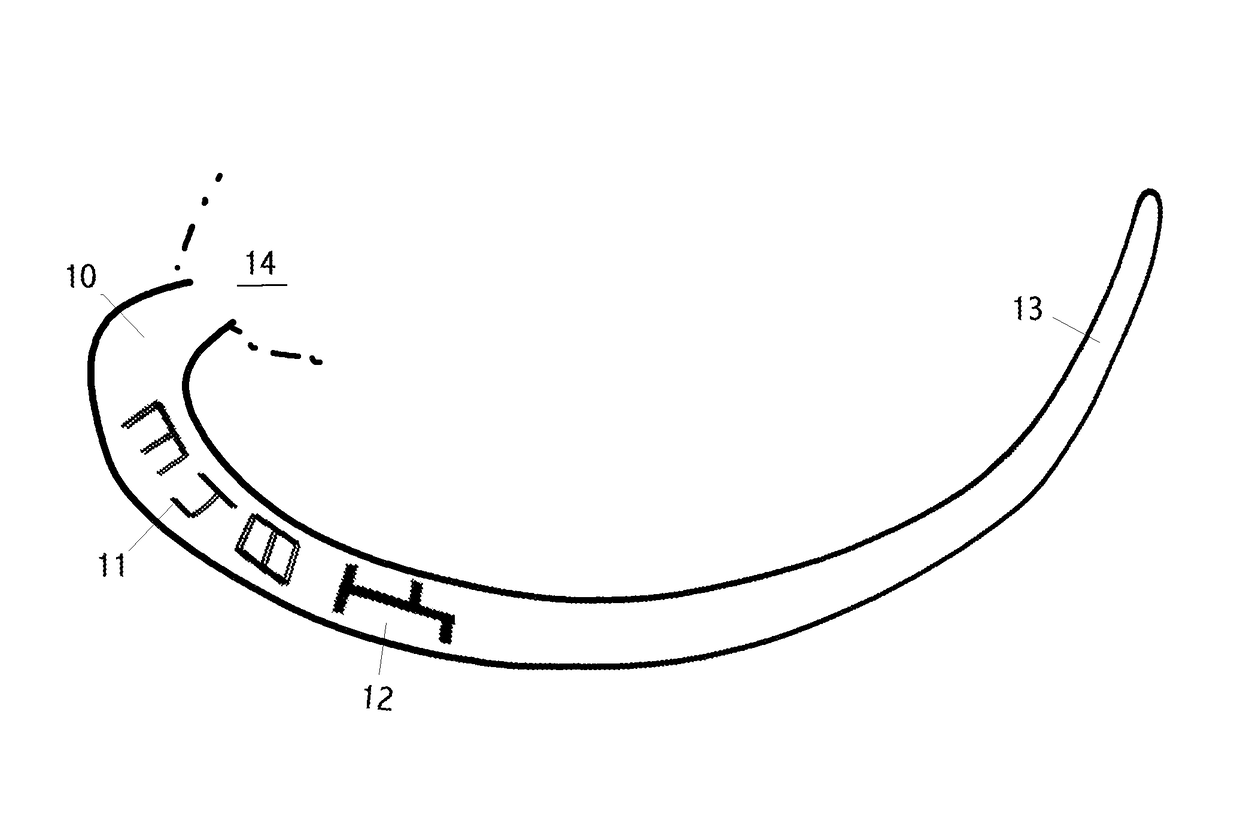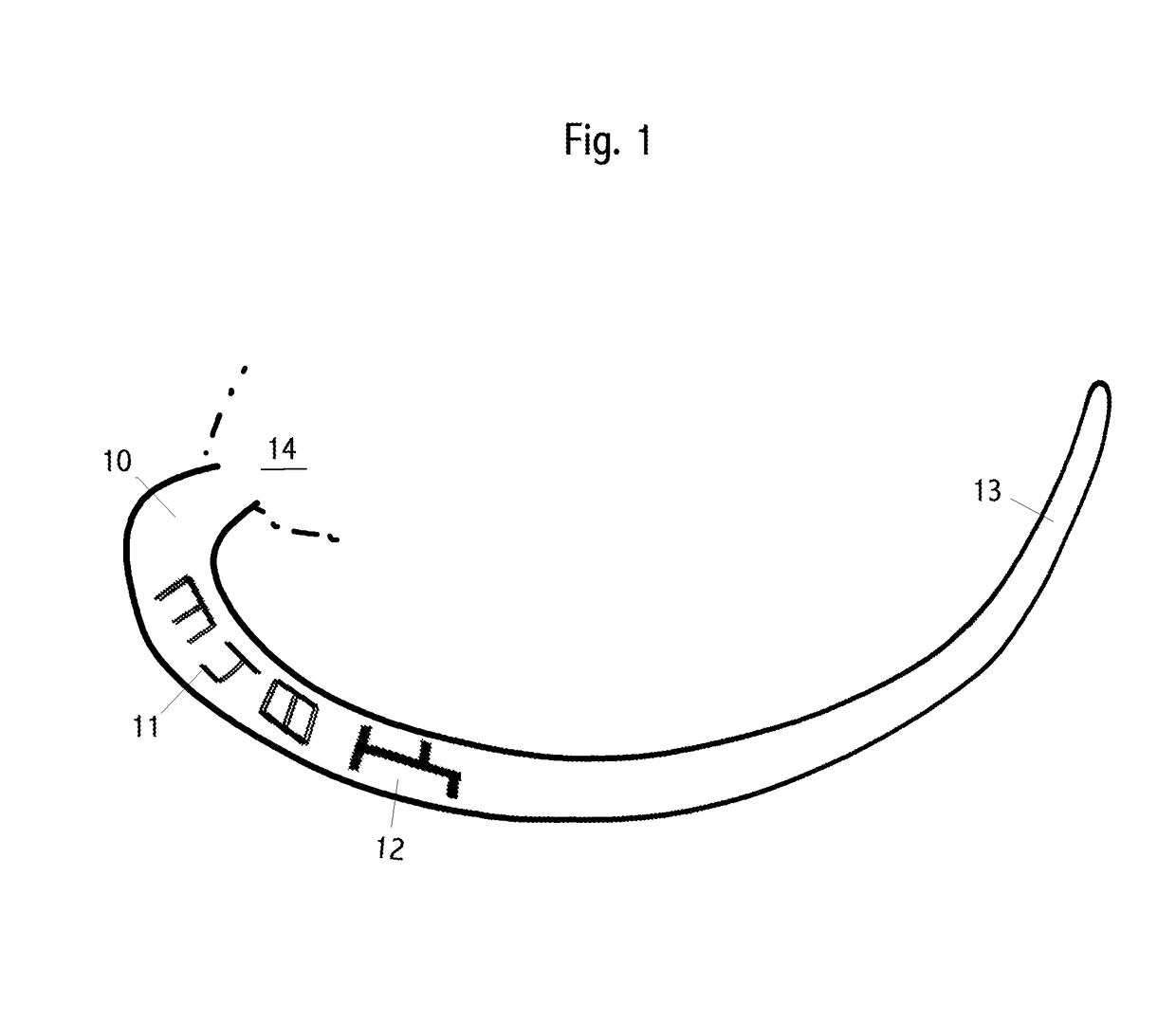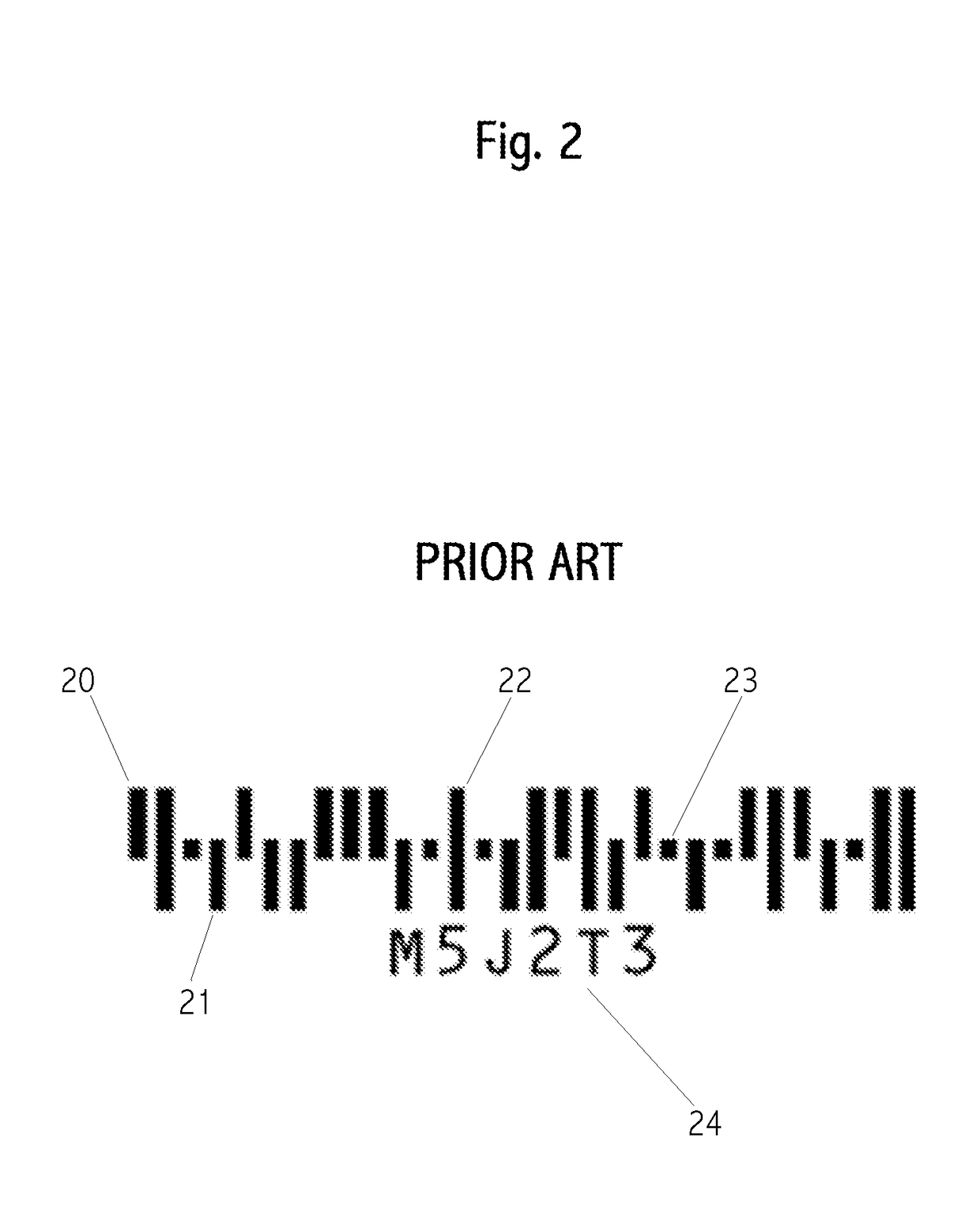Code for animal ID marking
a technology of animal identification and code, applied in the field of unique identification of animals in the vivarium, can solve the problems of loss of reliability, such as the use of tiny markings, and convenience, such as human readability
- Summary
- Abstract
- Description
- Claims
- Application Information
AI Technical Summary
Benefits of technology
Problems solved by technology
Method used
Image
Examples
Embodiment Construction
[0056]Prior art barcodes use one code or marking to identify an object. Most often, the barcode is essentially a font or encodes a number, such as a decimal or a binary number. The characters or number encoded is then the object identifier. Within some context or scope, that identifier is hopefully unique. Prior art barcodes generally assume reliable printing or marking, with some codes allowing for read errors by means of check digits, parity, CRC, checksums, or forward error correction. Prior art also assumes a uniform or consistent surface on which the barcode is printed or placed.
[0057]Animal ID marking, particularly for animals in a vivarium, including but not limited to rodents, have several unique requirements.
[0058]First, marking may not be reliable. In fact, if marking is accomplished by tattooing then marking errors may occur more frequently than reading errors. Thus, it is desirable to have a code that allows for correction of mismarked code symbols.
[0059]Second, not only...
PUM
 Login to View More
Login to View More Abstract
Description
Claims
Application Information
 Login to View More
Login to View More - R&D
- Intellectual Property
- Life Sciences
- Materials
- Tech Scout
- Unparalleled Data Quality
- Higher Quality Content
- 60% Fewer Hallucinations
Browse by: Latest US Patents, China's latest patents, Technical Efficacy Thesaurus, Application Domain, Technology Topic, Popular Technical Reports.
© 2025 PatSnap. All rights reserved.Legal|Privacy policy|Modern Slavery Act Transparency Statement|Sitemap|About US| Contact US: help@patsnap.com



